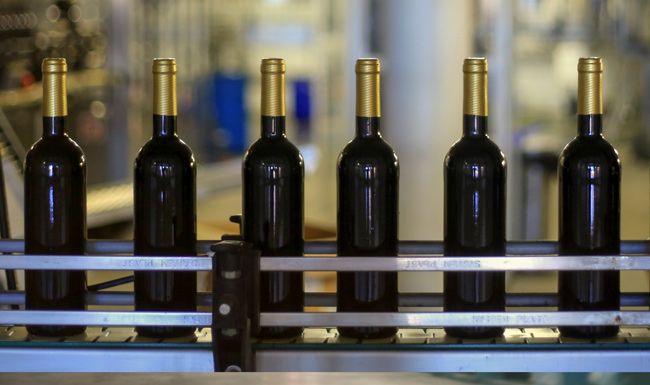
E-Invoicing and Its Geopolitical Stakes
France’s electronic invoicing reform relies on a Y-architecture, where Partner Dematerialization Providers (PDPs) play a central role in issuing and…
Generix Launches Solochain Now – Packaged Solution to Deploy a Complete SaaS WMS in as Little as 16 weeks View the press release

A WMS is a big-picture investment that should be backed by a long-term strategy. Which warehousing pain points does the company seek to address with a new WMS? Will it integrate seamlessly with existing and future technology solutions as well as their enterprise resource planning (ERP) system? Does it offer functionality tailored to the food and beverage vertical?
The right WMS can improve the movement of perishable goods, improve tracking and reporting, provide improved speed and efficiency, among other benefits. Here are 5 key considerations for food and beverage companies looking to select and integrate a new WMS.
When considering a WMS replacement, ease-of-use for employees is key. A WMS shouldn’t make simple tasks more complex or add excessive training time to managers’ busy schedules. This doesn’t mean workers will instantly adopt a new WMS. Rome wasn’t built in a day and the same should be true of your WMS integration.
Look for ease-of-use when navigating menus, help screens, as well as data entry, retrieval and the creation of reports and charts. The WMS should contain built-in help tools that are easy to access and understand to reduce training time and troubleshooting. This will provide less margin for error as employees are able to use business tools correctly and efficiently.
Food & Beverage brands rely on their WMS for efficiency, consistency, and quality control by improving the speed in which goods are processed and shipped. Investing in the right WMS can, decrease excess inventory, improve order fulfillment, and reduce the cycle time of orders.
When selecting a WMS consider how it empowers employees with more visibility, control, and fast and efficient key data access.
Employees should be empowered to better manage the flow of track items in real time, predict inventory fluctuations, and keep a close eye on items being shipped.
Learn how a reliable WMS helped improve operational efficiency of a Canadian ice-cream maker.
A WMS is seldom a one-size fits all solution. For this reason, ensure the system you select has the features and functionality needed to meet industry-specific requirements.
Food and beverage companies should identify the unique aspects of their company that make them truly niche. Does the business have a higher than usual amount of product they are attempting to produce and deliver to clients with a specific timeframe? Do they require coordination between multiple warehouses? Is the WMS built with technology that can handle high-volume transaction processing?
Other considerations include the variability of volume and demand. This is particularly relevant to food and beverage brands where environmental factors, seasonality, and varying customer expectations can create unpredictable market conditions.
Make sure the WMS provider can provide relevant use cases for food and beverage pertaining to businesses of similar size and scope.
One of the first things to consider when upgrading your WMS is the ease in which it integrates with an existing ERP. For companies also seeking to overhaul their ERP, it is wise to upgrade both in tandem to ensure they are selecting the correct solutions for years to come. If choosing a WMS ensure they have compatibility with leading ERP providers such as:
SAP
Infor
Sage
Microsoft
Oracle
Choosing a system that meets requirements today but also for years to come can be daunting. This is where food and beverage brands must ensure a clear technology roadmap so they can choose a WMS that grows and scales with their business.
In general a WMS should be compatible with industry leading ERPs and hardware brands, different business models and sizes, built on an open platform that is compatible with other SaaS solutions.
This will ensure flexibility and scalability for years to come.
Though there may be resistance within an organization to move on from a familiar legacy WMS, it’s critical to understand the potential costs of hanging on to an outdated one.
Older systems can quickly become unreliable, non-secure, or obsolete. They have likely undergone custom in-house development, which can lead to systems becoming too costly and time consuming to maintain, and nearly impossible to integrate with newer systems or technologies.
It’s important for food and beverage companies to consider today’s customer, but also who they will be serving for years to come.
Innovative technologies like Edge computing, IoT devices, and 5G are fast becoming table stakes for warehouse operations and will continue to evolve.
Investing in the latest WMS technology today can ensure years of reliability and improved efficiency.
Cameron’s Coffee is a coffee roasting, packaging, and distribution company, effectively roasting and distributing premium, specialty-grade coffee. They are headquartered in Shakopee, Minnesota and operate since 1978. The company is leading provider of both branded and private label coffee products in the U.S. Cameron’s Coffee offerings include single serve coffee pods, bagged whole bean and ground coffee, and bulk whole bean coffee as well as select tea products.
The manufacturer states that: “Adapting inventory processes enables employees to be more efficient, and the reduction in error would equip Cameron’s Specialty Coffee with the right strategy to satisfy their online customers. The same goes for satisfying visibility standards by tracing all ingredients, where use of real-time data instead of paper processes would yield greater inventory visibility and traceability. “
For more use cases, key finding and insights download our e-book, Post-Pandemic Impacts on Food & Beverage Companies. ![]()
About Generix Group North America
Generix Group North America provides a series of solutions within our Supply Chain Hub product suite to create efficiencies across an entire supply chain. Our solutions are in use around the world and our experience is second-to-none. We invite you to contact us to learn more.

France’s electronic invoicing reform relies on a Y-architecture, where Partner Dematerialization Providers (PDPs) play a central role in issuing and…

The B2B mandate in Germany, set to take effect on January 1, 2025, marks a crucial step in the European…

Following the October 15 announcement regarding the abandonment of the PPF development, the DGFIP and its partner AIFE are ramping…

Work with our team to build your ideal supply chain software stack and tailor it to your unique business needs.